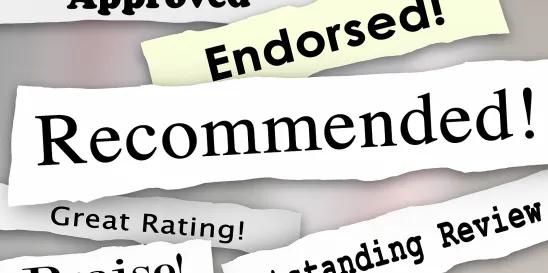- The Federal Trade Commission (FTC) has announced that it will hold an informal hearing on its Proposed Rule on the Use of Consumer Reviews and Testimonials on February 13, 2024. Representatives of Fake Review Watch, the Interactive Advertising Bureau, and a group of three marketing professors requested in their comments on the proposed rule the opportunity to speak at an informal hearing and will be accorded the opportunity to do so. Briefly, Fake Review Watch’s comments expressed concerns that the rule does little to hold review platforms accountable; the Interactive Advertising Bureau expressed concerns that the rule’s definitions of deceptive activity sweep too broadly and threaten to violate the First Amendment, and the professors described their research in mechanisms for generating trust in review platforms and expressed their opposition to any amendments to the rule that would require disclosure of reviewers’ identities.
- As discussed previously on our Consumer Protection Connection blog, the proposed rule would establish as deceptive (1) selling or obtaining fake consumer reviews or testimonials or false indicators of social media influence like fake followers or views; (2) repurposing a review of one product to apply to another, substantially different product (so-called “review hijacking”); (3) buying or otherwise incentivizing positive or negative reviews; (4) the writing of reviews of a company’s products by the company’s employees without disclosing the relationship; (5) a company’s controlling a website claiming to provide independent opinions about its own products; and (6) falsely presenting reviews as comprehensive if negative reviews have been suppressed, or using unjustified legal threats or other intimidation to suppress negative reviews.
- The hearing follows on the heels of the FTC November 2022 Advanced Notice of Proposed Rulemaking (ANPR). At that time, Chair Khan asserted that the new rule was necessary for the agency to contend with the increasing importance of endorsements and reviews in the online marketplace and the limitations on its ability to seek monetary relief following the Supreme Court’s decision in AMG Capital. Commissioner Wilson, who was at the time the sole Republican commissioner and has since resigned, lamented that “The Rule-a-Palooza at the FTC has begun!” and dissented from the vote to publish the ANPR. While agreeing that fake and deceptive reviews and endorsements were unlawful, she pointed out that the Commission already had “a multi-pronged strategy in place to combat this issue” and argued that a rulemaking was not the best use of agency resources.
- Indeed, only six months after AMG Capital was decided, the agency had sent Notices of Penalty Offenses to more than 700 companies warning them about the use of fake reviews and misleading endorsements, aiming to create a novel route for monetary relief. In January 2022, the FTC issued guides on Soliciting and Paying for Online Reviews and Featuring Online Customer Reviews. In June 2023, the agency revised the Endorsement Guides and issued a related staff guidance.
FTC to Hold Informal Hearing on Proposed Rule Banning Fake Reviews and Testimonials
Friday, January 12, 2024
Current Public Notices
Published: 3 September, 2025
Published: 28 August, 2025
Published: 25 August, 2025
Published: 25 August, 2025
Published: 25 August, 2025
Published: 25 August, 2025
Published: 22 August, 2025
Published: 20 August, 2025
Published: 20 August, 2025
Published: 18 August, 2025
Published: 18 August, 2025
Published: 14 August, 2025
Published: 11 August, 2025
Published: 8 August, 2025
Published: 26 June, 2025



 />i
/>i
